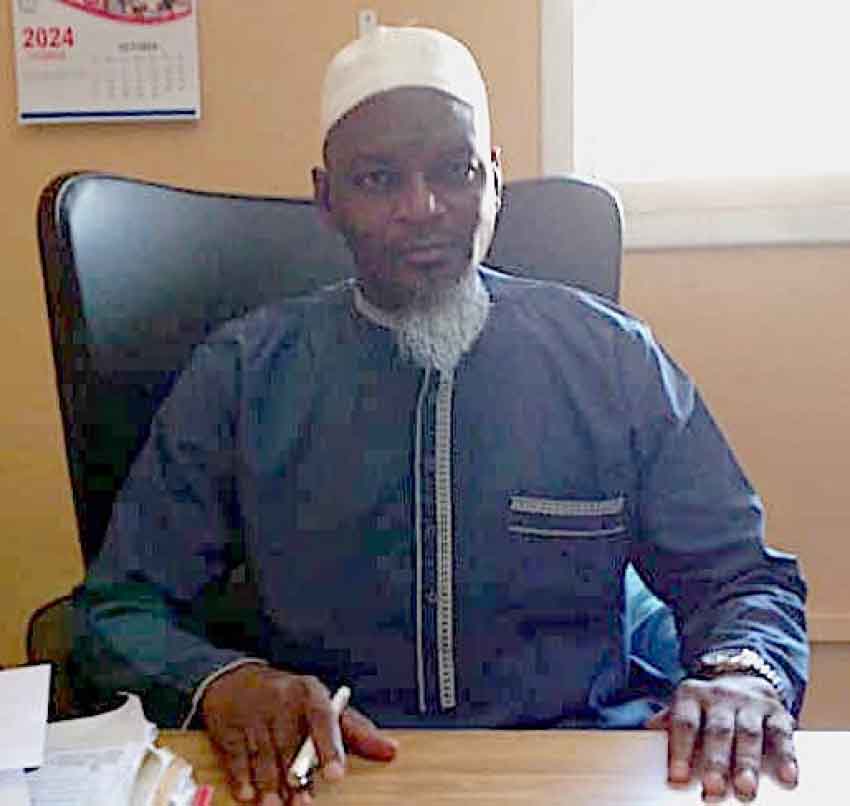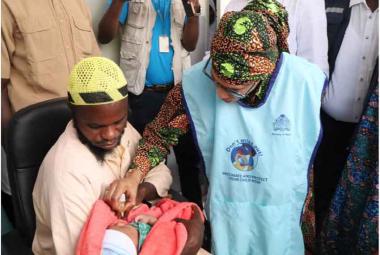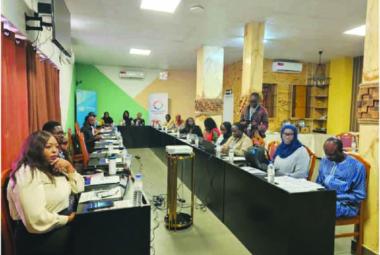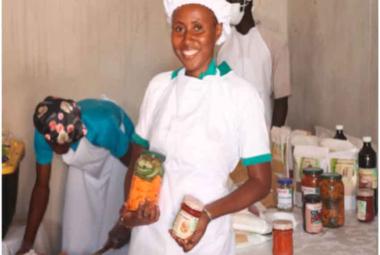By Lamin Kujabi
Welcome to ‘The Exclusive’. In this edition, we feature Lamin Fatty, the Registrar at the Electronic Civil Registration and Vital Statistics (ECRVS) unit at the Ministry of Health. The focus is on the new electronic birth registration programme Government recently introduced. In this interview, the Registrar delved into the significance of the new birth registration system, the difference between the old and the new, processes and the implications
Q. What is your unit about? My unit is formally called Birth and Death Registry Unit. Now with the advent of digital registration, it is renamed Informative Registration unit.
Q. Briefly tell us about the digital birth registration The digital birth certificate replaces the elongated birth certificate. The digital birth certificate has more features, contains more information about a person and all the information is aligned to the family of the applicant.
Q. What is the difference between the old birth registration and the new one? With the new birth registration we were able to identify place of birth of the individual electronically and also the family: the father and the mother. The old one has less information about the parents, but with this new birth registration the details of the parents are captured: where they were born and what nationality they are; whereas the old one only indicated the names of the child, father and mother but did not specify visually the parents’ nationality. Furthermore, the new one has more security features including a QR Code. These are controlled QR codes that are built for us who are operating the system to access the code to verify whatever certificate is being produced and only those who have access to it are able to read the code. All of this is for data protection, because we do not want to expose any individual data to public domain. If you use any QR code and usable reader you can have information about any individual. That is why the system is built in such a way that data can only be accessed by the authorised people. Moreover, with the previous birth registration, if registration was done as far as Basse, people in the office cannot have access to the information until the book is sent at the central level, or consultations are made to the regional level for the details of that particular individual at the regional level to be verified before they are provided new copy of the certificate.
Q. What awareness raising efforts did you put up to get people on board with the new initiative? The awareness raising campaign followed the launch of the initiative on 2nd August, 2022 by His Excellency Adama Barrow, President of the Republic of The Gambia. The campaign took seven months. We did community outreach – going from one community to another across the country and all the regions. We were able to register 1. 2 million Gambians by our first record but when edited and some adjustments made, the total registered number stood at 1.1 million Gambians. Obviously we were not able to register all Gambians because the population of the country is now about 2.4 million people; so we managed to register almost 50% of the population. Our aim is to register each and every Gambian in the new platform because we are doing away with the old platform, simply because it was analogue. With that lineage registration it was difficult to maintain; storage was a problem. Retrieving data was also a problem; unlike this new one, where all the details are in, any person registered across the country, we will have access to that data at the central level.
Q. Explain the legal implications As an international standard birth certificate is the breeder document which signifies who you are. According to the law 14 days after child’s birth, it needs to be registered. If the parent failed to do it they are fined. Under the current law the fine is small and I think that is why government is not enforcing it. Government wants community engagement that is why is not dragging parents to court for failure to register their children. The parent may feel traumatized as a result. We use advocacy instead. If a child is not registered they would not be considered a Gambian even if they were born in The Gambia. Every child born in the country needs to be registered to be counted Gambian.
Q. How does one register their child’s birth? The parent has to come with the infant’s welfare card, the parent’s ID card or passport. These are the documents you need to bring at the registration centre to get registered. We have introduced another system for children who are delivered at the health facility. We are using midwives to record deliveries and taking details of the parents and dates of deliveries. This is stored in the system and after the naming ceremony the mother can come with other supporting documents and get the child registered. This will be printed and handed over to her. The midwives are currently being trained.
Q. You mentioned training of midwives, what capacity initiatives do/did you have around this new birth registration programme? Capacity building is ongoing at the Ministry of Health. We have our human resources office that ensures that all service providers are properly trained to deliver services as needed. We have sent some officers overseas to be trained to have more knowledge about the system. We also provide indoor training for our staff to know how to deliver the services needed. Birth registration is here to stay and the process of training has to continue. Also, we need to ensure service centres are provided with the right equipment, protect the equipment and data protection is keenly observed.
Q. How do you ensure the information you are collecting is protected under the data protection principles? This is a national document and government is putting in place mechanisms for maintenance and keeping of data. We are using cloud storage to keep the data. The Ministry is hosting it and is paying certain amount of money to ensure that the data is protected. Government may come up with a user fee for service to continue but at the moment there is open access to every Gambian, so people would not claim that they cannot afford it. Moreover, about data protection, the staff signed non-disclosure of personal data. The privacy and security of the individual data is very paramount to the government. There are penalties for people who disclose people’s data. Even staff, including the registrar, have limitation in getting access to data. We cannot give personal information to any person. It is only the court and data owners who give their consent for their data to be verified. In an instance where one goes to an embassy for visa, and submit personal information; they may have a clause that the data needs to be verified. If you agree to it during the application the embassy may send the document that needs to be verified. The only right you have is your own personal data. Third party cannot have access to someone’s data and you cannot have any information that you are not authorized to have.
Q. What is your final message? This is a golden opportunity for every Gambian. I call on all to come on board to get registered. Is free of charge for children 0-5 years old and for adults is D12.50. The amount is not significant compared to the work done. Birth certificate is the breeder document to all other documents. In the future Government may come up with a birth certificate fee but is yet to decide on that. The Minister wants all Gambians to be registered and have this important document. Also, he is working hard with his counterparts to ensure Gambians get this document. I therefore call on parents to immediately register their children after the naming ceremony







